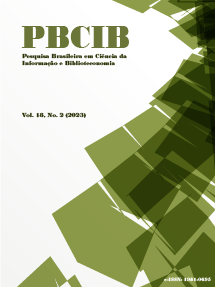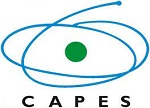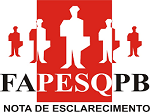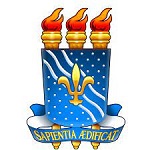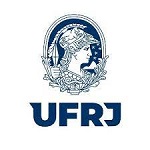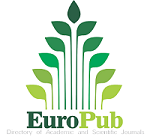A organização do conhecimento no domínio das ciências sociais e humanidades na perspectiva de Douglas John Foskett e Derek Wilton Langridge: uma abordagem aos Estudos Culturais e inovações disruptivas
Visualizações: 25Palavras-chave:
Organização do Conhecimento, Sistemas de Organização do Conhecimento, Ciências Sociais, Humanidades, Douglas John Foskett, Derek Wilton Langridge, Estudos Culturais, Inovações DisruptivasResumo
Apresenta as contribuições de Derek Wilton Langridge e Douglas John Foskett para inovações disruptivas no âmbito da Organização do Conhecimento, com foco nos sistemas de organização do conhecimento nas Ciências Humanas e Sociais. A inovação disruptiva no domínio da Organização do Conhecimento provoca a quebra de paradigmas e modelos de organização e representação do conhecimento por meio de instrumentos inovadores para satisfazer as necessidades de usuários na recuperação de informação. Este trabalho tem como objetivo apresentar as contribuições de Derek Wilton Langridge e Douglas John Foskett para inovações disruptivas nos aspectos culturais da Organização do Conhecimento e sua influência nos Sistemas de Organização do Conhecimento por meio da análise de domínio e da análise de conteúdo. A abordagem metodológica utilizada nos permitiu evidenciar que Foskett e Langridge com suas obras seminais contribuíram para a teoria, a prática, o ensino e o desenvolvimento da Organização do Conhecimento enquanto um domínio de conhecimento bem como para a construção de esquemas de classificação especializados nas Ciências Humanas e Sociais que são a base dos Estudos Culturais.
Disponível em: https://revista.ibict.br/p2p/article/view/5923
Referências:
BAPTISTA, M. M. Estudos culturais: o quê e o como da investigação. Carnets [Online], Première Série - 1 Numéro Spécial | 2009. Disponível em: http://journals.openedition.org/carnets/4382. Acesso em: 18.12.2019
BARDIN, L. Análise de conteúdo. São Paulo: Edições 70, 2011.
BROUGHTON, V. Brian Vickery and the Classification Research Group: the legacy of faceted classification. In: GILCHRIST, A. (Ed.) Proceedings of the Second National ISKO UK Conference 2011, 2011.
BROUGHTON, V. CRG. Mensagem recebida por: em 02.02.2022.
CHRISTENSEN, C. M. The innovator’s dilemma: When New Technologies Cause Great Firms to Fail. Boston: Harvard Business School Press, 1997.
DAHLBERG, I. The Information Coding Classification (ICC): a modern, theory-based fully-faceted, universal system of knowledge fields. Axiomathes, v. 18, p. 161-176, 2008. DOI: 10.1007/s10516-007-9026-8.
DAHLBERG, I. Knowledge organization: its scopes and possibilities. Knowledge Organization, Frankfurt, n. 20, p. 211-222, 1993.
FOSKETT, D. J. Classification and integrative levels. London: Butterworths, 1960.
FOSKETT, D. J. Classification and Indexing in Social Sciences. London: Butterworths, 1963.
FOSKETT, D. J. Science, humanism and libraries. London: Butterworths, 1964.
FOSKETT, D. J. The Classification Research Group 1952-1968. In: KENT, A.; LANCOUR, H. (Ed.). Encyclopedia of Library and Information Science. 5. New York: Marcel Dekker, 1971. p. 141-145.
FOSKETT, D. J. The Classification Research Group: 1952-1962. Libri, v. 12, n. 2, p. 127-138, 1962.
GEERTZ, C. The interpretation of cultures. New York: Basic Books, 1973.
GRÁCIO, M. C. C. Acoplamento bibliográfico e análise de cocitação: revisão teórico-conceitual. Encontros Bibli, Florianópolis, v. 21, n. 47, p. 82-99, 2016.
HJØRLAND, B. Theories of Knowledge Organization: theories of knowledge. Knowledge Organization, v. 40, n. 3, p. 169-181, 2013.
HJØRLAND, B.; ALBRECHTSEN, H. Toward a new horizon in Information Science: domain analysis. Journal of the American Society for Information Science, New Jersey, v. 46, n. 6, 1995.
HJØRLAND, B.; HARTEL, J. Afterword: ontological, epistemological and sociological dimensions of domains. Knowledge Organization, Frankfurt, v. 30, p. 239-245, 2003.
HOFSTEDE, G. H. Cultures and organization: software of the mind. London: Harper Collins, 1994.
HOGGART, R. As utilizações da cultura: aspectos da vida da classe trabalhadora, com especiais referências a publicações e divertimentos. Lisboa: Editorial Presença, 1973 [1957].
INTERNATIONAL Study Conference on Classification for Information Retrieval, Dorking, 1957. Proceedings… London, Aslib, 1958.
JORENTE, M. J. V.; NAKANO, N. Inovação, tecnologias de informação e comunicação e processos disruptivos. Informação & Informação, Londrina, v. 17, n. 2, p. 37-54, 2012. Acesso em: 19 nov. 2020.
LANGRIDGE, D . W. Approach to classification: for students of librarianship. London: Clive Bingley, 1973.
LANGRIDGE, D. W. (Ed.). The Universe of knowledge: essays by members of the Special Seminar held during the fall semester, 1967. Assisted by Esther Herman. University of Maryland. School of Library and Information Services, 1969.
LANGRIDGE, D. W. Classification and indexing in the Humanities. London: Butterworths, 1976.
LEE, W. C. Culture and Classification: an introduction to thinking about ethical issues of adopting global classification standards to local environments. Knowledge Organization, Frankfurt, v. 42, n 5, p. 302-307, 2015.
LÓPEZ-HUERTAS, M. J. Cultural impact on Knowledge Representation and Organization in a subject domain. In: Culture and Identity in Knowledge Organization: Proceedings of the Tenth International ISKO Conference 5-8 August 2008 Montréal, Canada, edited by Clément Arsenault and Joseph T. Tennis. Advances in Knowledge Organization, 11. Würzburg: Ergon Verlag, 2008. p. 340-346.
LÓPEZ-HUERTAS, M. J. Transcultural categorization in contextualized domains. Information Research, v. 18, n. 3, paper C16, 2013.
MCILLWAINE, I. C.; Broughton, V. The Classification Research Group then and now. Knowledge Organization, Frankfurt, Borás, v. 27, n. 4, p. 195-199, 2000.
MARTINS, M. de L. O Cultural Studies no Instituto de Ciências Sociais da Universidade do Minho. Caminhos nas ciências sociais: memória, mudança social e razão. Repositório UMinho, 2010. Disponível em: http://repositorium.sdum.uminho.pt /bitstream/1822/25339/1/os_cultural_studies.pdf. Acesso em: 30/01/2020.
OLSON, H. A. Difference, culture and change: the untapped potential of LCSH. Cataloging & Classification Quarterly, London, v. 29, n. 1/2, p. 53-71, 2000.
RANGANATHAN, S. R. Colon Classification. 3rd ed. Madras: Madras Library Association, 1950.
RANGANATHAN, S. R. Elements of library classification. Poona: N.K. Publishing House, 1945.
RANGANATHAN, S. R. Philosophy of library classification. Copenhagen, 1951.
RANGANATHAN, S. R. Prolegomena to library classification. Bombay: Asia Publ. House, 1967.
RICHMOND, P. A. Precedent-setting contributions to modern classification. Journal of Documentation, London, v. 44, n. 3, p. 242-244, 1988
SCHUMPETER, J. A. Ciclos económicos: análisis teórico, histórico y estadístico del proceso capitalista. Zaragoza: Prensas de la Universidad de Zaragoza, 1939.
STEINWACHS, K. Information and Culture: the impact of national culture on information processes. Journal of Information Studies, Los Angeles, v. 25, p. 193-204, 1999.
SWALES, J. M. The concept of discourse community. In: SWALES, J. M. Genre analysis: English in Academic and Research Settings. Cambridge: Cambridge University Press, 1990. p. 21–27.
VICKERY, B. C. Classification and indexing in science. London: Butterworths, 1958.
VICKERY, B. C. The Royal Society Scientific Information Conference of 1948. Journal of Documentation, London, vol. 54, no. 3, p. 281-283, 1998.
WILLIAMS, Raymond. Culture and Society 1780-1950. Harmondsworth: Penguin Books, 1958.
WORLD Encyclopedia of Library and Information Services. 3rd. ed. Chicago: American Library Association, 1993. D. J. FOSKETT. p. 299-300.

